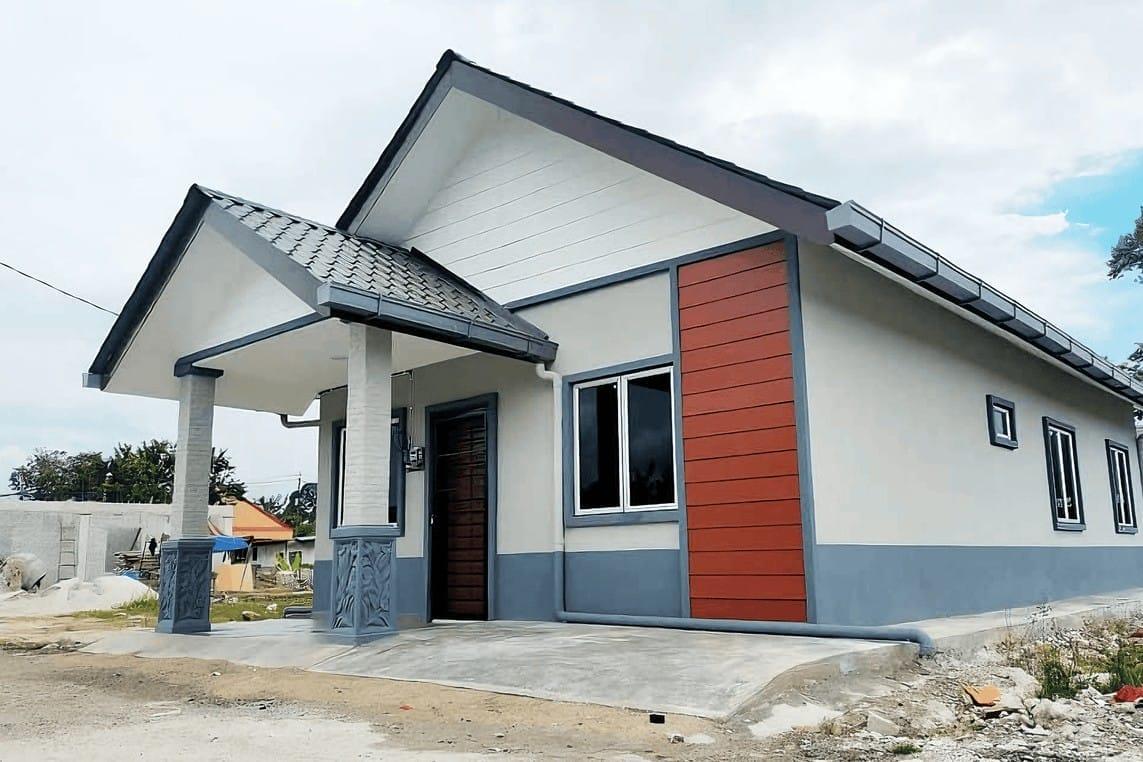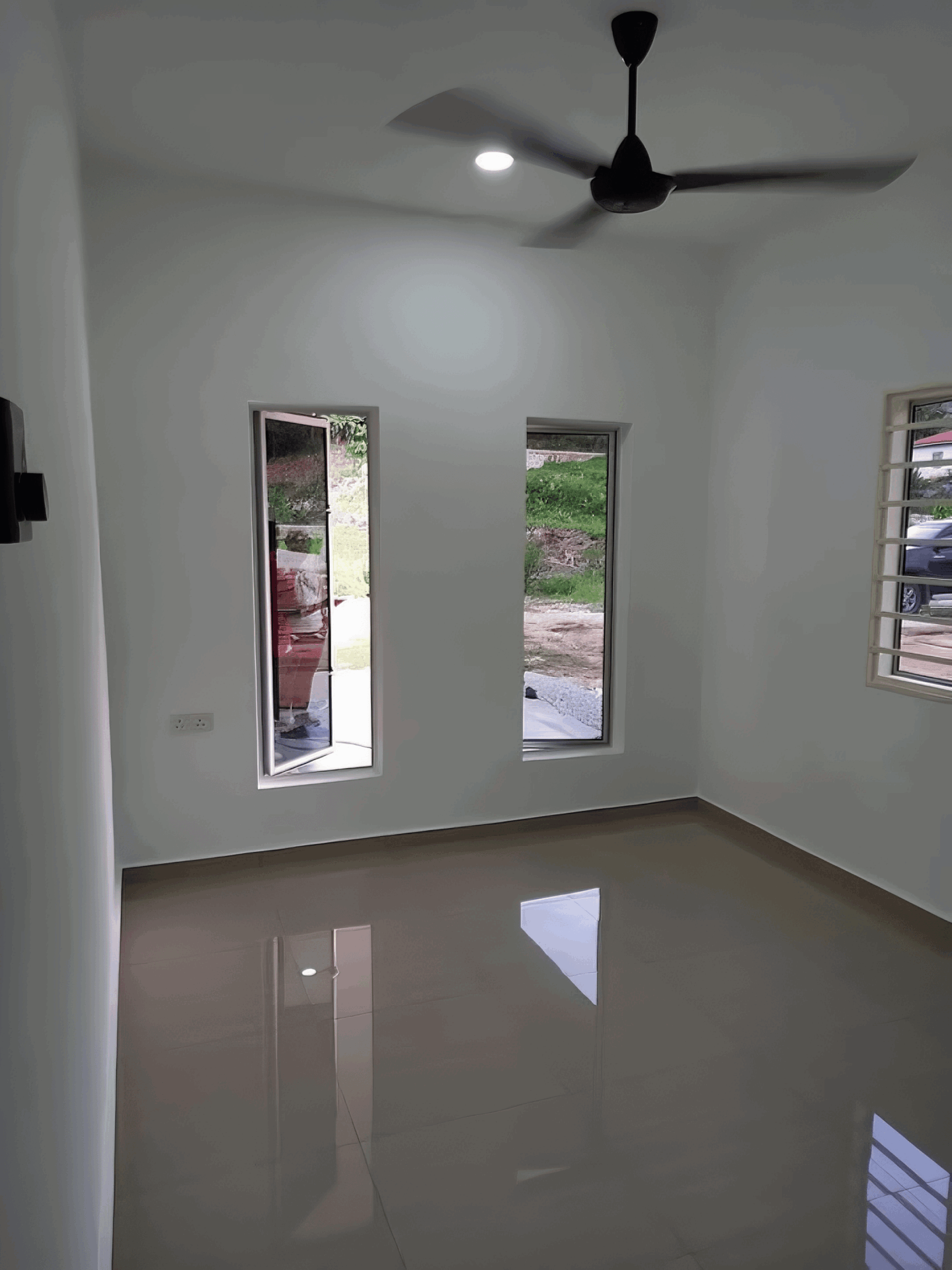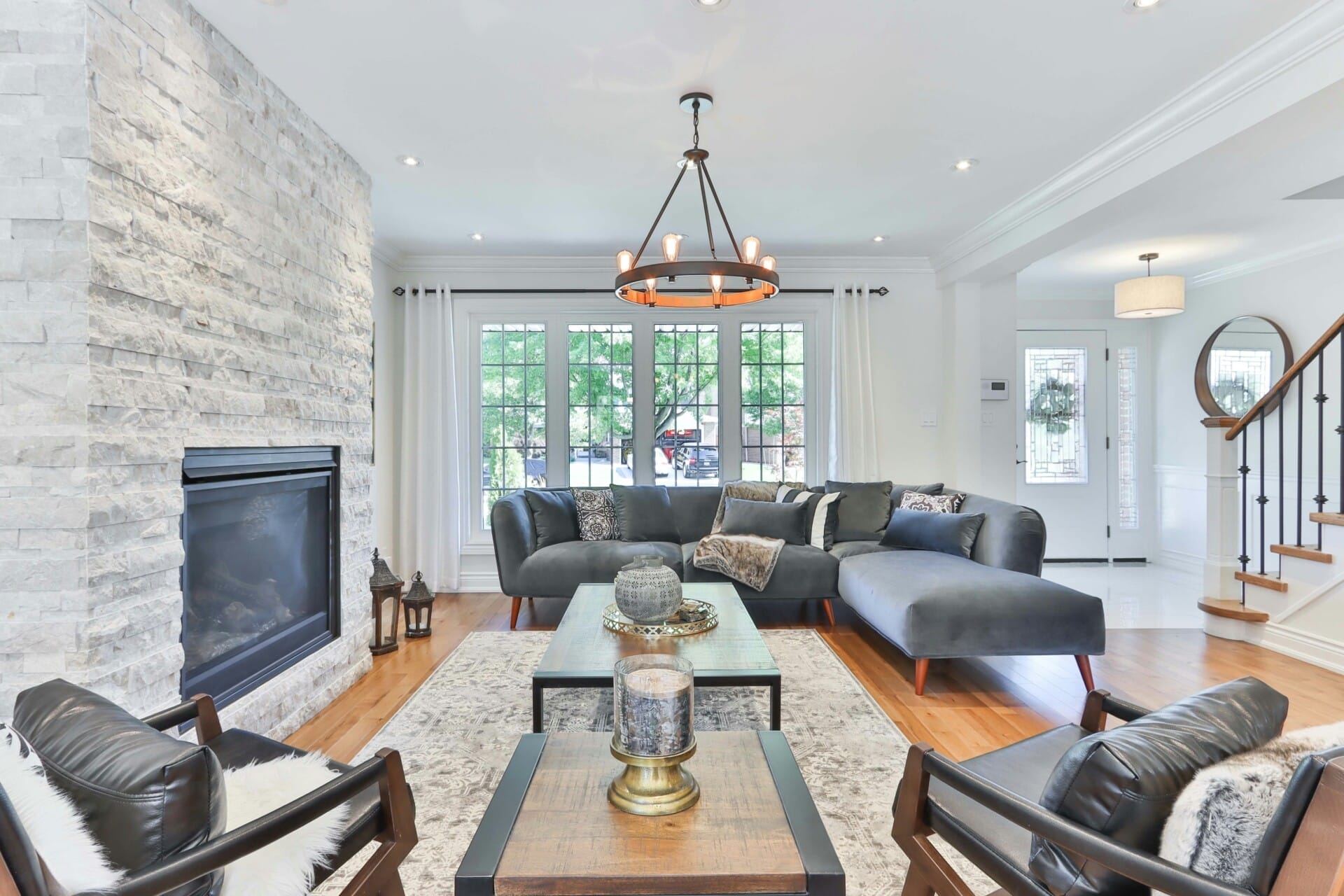Why Progress Billing is the Smartest Way to Pay for Your Home Construction 🧠💸 | RumahHQ

Building your dream home is an exciting adventure, but let’s be honest—it can also be a bit nerve-wracking. You’ve got plans, visions, and a budget to stick to, but how do you ensure everything stays on track financially? Enter progress billing, the unsung hero of home construction financing! This system allows you to pay for the work as it gets done, rather than shelling out a huge lump sum upfront. It’s like Netflix for your construction project—you only pay for the episodes you’ve watched! In this article, we’ll explore why progress billing is not just a smart way to manage your payments, but also a savvy move for ensuring your dream home becomes a reality without breaking the bank. So, grab a cup of kopi, sit back, and let’s dive in!
Understanding Progress Billing and Its Benefits
Progress billing is a payment method that aligns with the pace of your home construction project. Instead of making a lump sum payment upfront, you pay for the work as it progresses, which ensures that you’re only funding completed tasks. This approach gives you a clearer overview of how your investment translates into tangible value at every stage of construction. You can actually see your home taking shape, which makes it easier to manage your budget and set expectations.
One of the biggest advantages of using progress billing is the enhanced cash flow management it offers. By breaking payments into smaller chunks, you can avoid financial strain and mitigate risks associated with overpaying before ensuring that work has been completed to your satisfaction. This method fosters a more cooperative working relationship between you and your contractor since it keeps both parties accountable, ensuring that quality is maintained throughout the building process. It’s like having a safety net; you only release funds when you’re happy with the work done so far.
Additionally, progress billing can also help you identify potential budget issues early on. As each stage is completed and billed, you have the opportunity to review expenses and make adjustments if necessary. This flexibility can be essential in a dynamic construction environment. Rather than waiting until the end to uncover hidden costs, you can actively manage your budget along the way. In short, the incremental nature of progress billing not only simplifies payments but also promotes transparency and control over your home-building journey.

Breaking Down the Payment Structure in Home Construction
Understanding how payments work in home construction can feel a bit like deciphering a secret code, but once you break it down, it all makes sense. One of the most popular and effective methods is progress billing. With this system, you pay for work as it’s completed, which means you’re actively investing in the home-building process. This method aligns your payments with the project’s stages, allowing both you and your contractor to stay on the same page.
Here’s a rough idea of how progress billing generally breaks down:
- Initial Deposit: A small percentage is typically due up front to secure the contractor’s services.
- Stage Payments: As specific milestones are achieved, you make additional payments. This could be after completing the foundation, framing, roofing, and so forth.
- Final Payment: This is usually made upon completion of the project, ensuring that everything is done to your satisfaction before making the last payment.
This structure not only provides financial security but also offers peace of mind. By tying payments to completed work, you’re protected against potential issues like subpar construction or incomplete tasks. Plus, it gives you the chance to regularly assess progress and address any concerns promptly. After all, building your dream home should be an exciting journey, not a stressful burden!

Enhancing Project Transparency Through Progressive Payments
In the ever-evolving world of home construction, transparency is key. When opting for a progressive payment plan, both homeowners and contractors can enjoy a clearer understanding of project milestones. This approach ensures that funds are released only upon completion of specific phases, like foundation work, framing, or interior finishes. By linking payments to actual progress on site, it minimizes the risk of overpaying for work that hasn’t yet been completed.
With progressive payments, homeowners gain closer insight into how their investment is being used. Communication becomes paramount; updates on the project’s status lead to a more open dialogue between clients and builders. The trust built through regular check-ins cultivates a healthier working relationship. You’re not just a passive investor; you’re actively engaged and aware of where your money is going at every stage of the process.
To illustrate the benefits of this payment system, consider the following table that highlights key phases and their corresponding payouts:
| Project Phase | Payment Amount | Completion Criteria |
|---|---|---|
| Site Preparation | 10% | Land cleared and inspected |
| Foundation | 30% | Foundation walls completed |
| Framing | 30% | Roof and walls up |
| Finishing | 20% | Inspections passed and fixtures installed |
| Final Walkthrough | 10% | Homeowner satisfaction |
By breaking down payments this way, it’s crystal clear what each payment corresponds to, aligning expectations and making financial planning much easier for everyone involved. Engaging in this method not only promotes accountability but also paves the way for a stress-free construction experience!

Aligning Cash Flow with Construction Milestones
In the construction journey of your dream home, aligning cash flow with significant milestones can be as crucial as making sure the foundation is laid right. With progress billing, you’re not just paying for materials and labor upfront; you’re strategically releasing funds as specific phases of your project come to life. This means you’re only paying for work that’s been completed, reducing financial risk and ensuring you’re getting what you’re supposed to pay for.
By linking payments to construction milestones, you can enjoy a sense of control and peace of mind. Here’s how it works:
- Foundation Completion: Make your first payment once the groundwork is laid, ensuring everything is set for the solid structure.
- Rough Structure: Release funds once walls and roof are erected, knowing the skeleton of your home is secure.
- Interior Finishes: Pay after confirming that the interiors meet your expectations, right down to the fixtures.
- Final Inspection: The last payment gets released once you’re satisfied with the final walkthrough.
Here’s a quick reference on how progress billing keeps your cash flow healthy while construction advances:
| Milestone | Payment Percentage | Payment Schedule |
|---|---|---|
| Foundation | 10% | Upon Completion |
| Structure | 25% | Upon Completion |
| Interiors | 30% | Upon Inspection |
| Final Touches | 35% | Upon Final Approval |

Mitigating Financial Risks for Homeowners and Contractors
Managing finances during home construction can be a daunting task for both homeowners and contractors. One effective way to minimize financial risks is through progress billing. This method allows for payments to be made based on milestones achieved, ensuring that funds are disbursed only when tangible work is completed. By aligning payments with progress, both parties can maintain better cash flow management and financial transparency.
For homeowners, this means you can rest easy knowing that your money is being tied to actual work rather than estimates or promises. Similarly, contractors also benefit as they receive timely payments that reflect the project’s progression. Here are a few key benefits:
- Reduces Financial Exposure: Homeowners only pay for work completed, limiting losses.
- Encourages Accountability: Contractors are motivated to meet deadlines to receive payments.
- Promotes Trust: Regular updates and payments foster a collaborative relationship between homeowners and contractors.
To visualize how progress billing can be structured, here’s a simple breakdown of potential milestones and associated payments:
| Milestone | % of Total Cost | Payment Amount |
|---|---|---|
| Initial Deposit | 10% | RM 10,000 |
| Foundation Complete | 20% | RM 20,000 |
| Framing Complete | 30% | RM 30,000 |
| Final Inspection | 40% | RM 40,000 |

Fostering Trust Between Homeowners and Builders
Building a house is not just about bricks and mortar; it’s about establishing a deep-seated relationship between homeowners and builders. Trust is essential to ensure that each party feels valued, respected, and understood throughout the construction process. One effective way to foster that trust is by adopting progress billing, which allows homeowners to pay for their home construction in increments based on completed work. This system not only keeps finances transparent but also encourages builders to maintain high standards every step of the way.
With progress billing, both homeowners and builders have a clear understanding of expectations and milestones. Homeowners can pay for their projects in stages, ensuring they are satisfied with the progress before the next payment is made. This creates a collaborative environment where builders feel motivated to deliver quality work on time. By implementing this system, you can enjoy benefits like:
- Increased accountability from builders
- Greater financial control for homeowners
- The ability to address issues as they arise, rather than after project completion
Moreover, adopting progress billing can open avenues for better communication. Regular updates on the construction progress allow homeowners to remain engaged and voice their opinions while ensuring the builder stays informed of any concerns. Effective communication can be achieved through regular progress meetings or updates through digital platforms. To illustrate the effectiveness of this approach, here is a simple comparison of traditional lump-sum payments versus progress billing:
| Payment Method | Trust Level | Flexibility | Risk for Homeowners |
|---|---|---|---|
| Lump-Sum Payment | Low | Low | High |
| Progress Billing | High | High | Low |

Expert Tips for Implementing Progress Billing Successfully
Implementing progress billing successfully involves clear communication and proper documentation. Start by setting expectations with your contractor. Discuss the payment schedule upfront and ensure you both agree on project milestones and the corresponding payments. This reduces misunderstandings and sets a clear path for the remaining stages of the construction.
Another essential tip is to keep detailed records of all transactions and agreements. Maintain a project diary or spreadsheet with notes on each billing cycle, including dates and services rendered. This not only helps in tracking how much has been laid out but is also useful in resolving potential disputes. You might want to consider the following:
- Document all changes made to the original project plan.
- Photograph the progress at various stages.
- Save copies of all invoices and payments.
Before making any payments, always inspect the work completed against the agreed milestones. This ensures that you’re paying for actual progress and quality of work. Arrange regular meetings with your contractor to review the work and address any concerns. A well-maintained inspection schedule can save you from future headaches and ensure that the project stays on track.

Conclusion: The Long-Term Advantages of Smart Payments in Construction
Embracing smart payment methods, like progress billing, can unlock a myriad of long-term benefits for those involved in construction projects. By opting for this structured payment approach, homeowners can ensure that their finances align with project milestones. This creates a more effective budgeting strategy, allowing for better cash flow management. When payments correlate directly with the completion of specific phases, it helps to mitigate financial strain, ensuring that funds are available exactly when needed, without unnecessary delays or anxiety.
Additionally, the advantages extend beyond just financial management. Progress billing fosters a stronger relationship between homeowners and contractors. This collaborative approach enhances transparency and accountability throughout the construction process. Contractors are more motivated to meet deadlines and maintain high-quality standards when they’re incentivized through regular payments tied to specific achievements. This mutual trust can lead to a smoother, less stressful building experience, ultimately contributing to the success of the project.
by setting clear payment schedules, homebuilders can better manage their expectations regarding timelines and progress. This can help prevent potential disputes and misunderstandings down the line. Below are some key advantages of smart payments in construction:
- Improved cash flow: Payments are made according to project milestones.
- Enhanced control: Provides a clear outline of project costs and expenses.
- Boosts motivation: Contractors are driven to meet specified milestones.
- Fosters communication: Encourages ongoing dialogue between contractors and homeowners.
To Wrap It Up
As we wrap things up, it’s clear that progress billing just makes sense when it comes to funding your home construction journey. Not only does it lighten the financial load, but it also gives you peace of mind knowing that you’re only paying for completed work. It’s like a careful dance where you keep the cash flowing but also keep an eye on the progress being made.
So, if you’re gearing up to build your dream home, seriously consider going the progress billing route. You’ll not only manage your budget better but also create a smoother relationship with your contractor. And who wouldn’t want that, right? Remember, smart financial choices today can lead to a more secure and satisfying tomorrow in your new abode. Happy building! 🛠️🏡✨











